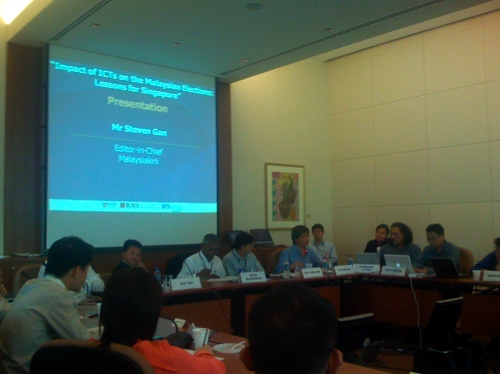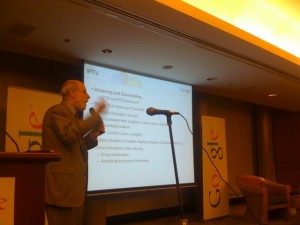
It is a close door session and I shall respect the decision of the organizer to keep the close door discussion, which is very interesting, private.
But I raise up two points at the event that I am at a liberty to share:
1. Actually the impact of New Media has being felt in the Singapore 2006 GE before the Malaysia 2008 Elections.
While there is no doubt PAP will come back in power, PAP was very confident that it will win at least 80% of the popular votes at 2006 GE. The result? 66.6%.
Despite a ban on all political discussion on the internet like blogs and forums, political blogs continues to thrives during the election period and discussions are vibrant. While the traditional media continues to behave like typical Singapore traditional media then, people has turn to the new media. In fact, the new media forces the traditional media to eventually cover stories that it has shunned.
While not all the differences between 80% and 66.6% can be credit to new media, the new media certainly plays a role.
2. I am anxiety that the power-to-be seem to take an attitude that New Media is some sort of anti-establishment uncontrolled platform that needs to be tamed.
New Media gains creditability not because it is anti-establishment. It gains creditability every time the traditional media makes a blunder, forcing people to turn to New media as an alternative news source. Each time traditional media tried to “shape” the opinions of the people that does not reflect reality, it loses readers to the New Media. The more controls you have on traditional media, the more people turn to New Media, whom they feel *reflect* their views.
Thus, New Media is like any media – what is important is the stories that can connect and engage the readers. It seem anti-establishment because the anti-establishment get no voices in the traditional media and thus this is the avenue for them. It seem uncontrollable because the power-to-be never want to contact and engage in the New Media, afraid that any contacts using New Media will add credibility to the New Media, afraid that any engagement with the readers is murky because they will get questions and god-forbid, they have to answer those questions.













